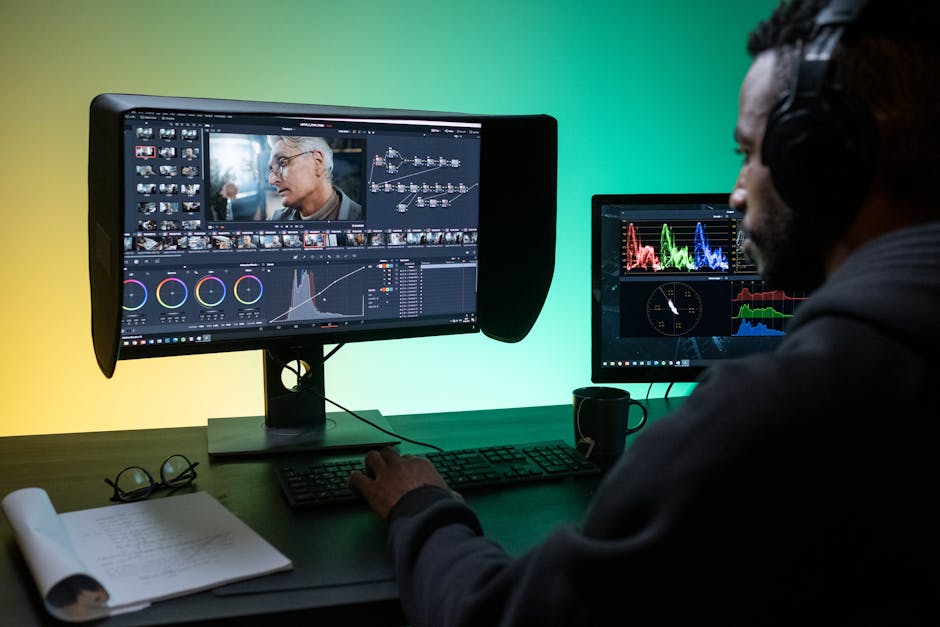Special Features: Documentaries with Exclusive Interviews and Footage

Documentaries have long served as powerful tools for storytelling, providing viewers with a deeper understanding of various subjects through exclusive interviews and rare footage. These special features set them apart from other forms of media by offering firsthand accounts and unique visuals that enrich the narrative. By capturing the essence of real-life events and experiences, documentaries with exclusive content can evoke strong emotional responses and foster greater empathy among audiences.
The Value of Exclusive Interviews
Exclusive interviews are a cornerstone of many compelling documentaries. They provide an insider's perspective that is often unattainable through other means. Interviews with key figures—whether they are experts, eyewitnesses, or individuals directly involved in the subject matter—add a layer of authenticity and depth to the documentary.
These interviews offer more than just facts; they present personal stories that humanize complex issues. For instance, in Ken Burns' "The Vietnam War," veterans and civilians share their poignant memories, giving viewers a multifaceted understanding of the conflict. Such narratives can make historical events more relatable and engaging.
Moreover, exclusive interviews can unveil new information or perspectives that might not be available in public records or secondary sources. This element of exclusivity can significantly enhance the documentary's credibility and appeal. According to a study by the Center for Media & Social Impact, documentaries featuring exclusive interviews are more likely to influence public opinion and spur social change.
Impact of Rare Footage
Rare footage is another critical element that can elevate a documentary. Whether it’s archival material, behind-the-scenes clips, or previously unseen recordings, rare footage adds a visual dimension that words alone cannot convey. It helps create a more immersive experience for viewers.
Consider "Apollo 11," a documentary that uses never-before-seen footage from NASA's archives to chronicle the historic moon landing. The film's unique visual content offers an unprecedented look at one of humanity's greatest achievements, allowing viewers to experience the event as if they were there.
This type of exclusive content also serves as a valuable historical record. It preserves moments in time that might otherwise be forgotten or overlooked. Documentaries like "For Sama," which captures life during the Syrian Civil War through personal video diaries, provide raw and unfiltered glimpses into situations often misrepresented or underreported by mainstream media.
Technological Advances in Documentary Filmmaking
The advent of new technologies has revolutionized documentary filmmaking, enabling creators to capture and present exclusive content more effectively. High-definition cameras, drones, and virtual reality (VR) are just a few examples of tools that have expanded the possibilities for filmmakers.
Drones, for instance, have made it possible to obtain aerial footage that was once logistically challenging and prohibitively expensive. This technology has been used in documentaries like "Planet Earth II" to capture stunning visuals of wildlife and natural landscapes from unique vantage points.
Virtual reality is another groundbreaking tool that offers immersive experiences. VR documentaries such as "Notes on Blindness: Into Darkness" allow viewers to step into the shoes of John Hull, who lost his sight in adulthood. This level of immersion can lead to a deeper understanding and empathy for the subject matter.
The table below highlights some significant technological advancements in documentary filmmaking:
| Technology | Impact on Filmmaking |
|---|---|
| High-Definition Cameras | Enhanced visual clarity and detail |
| Drones | Access to aerial footage and remote locations |
| Virtual Reality (VR) | Immersive experiences for viewers |
| 4K/8K Resolution | Superior image quality for large screens |
| Advanced Editing Software | Sophisticated post-production capabilities |
The Role of Documentaries in Social Change
Documentaries with exclusive content play a pivotal role in driving social change by raising awareness about critical issues and inspiring action. Films like "An Inconvenient Truth" brought global attention to climate change through compelling interviews and alarming footage of environmental degradation.
The impact of such documentaries extends beyond individual awareness; they can influence policy changes and mobilize communities. For example, "Blackfish," which exposed the dark side of captive marine mammal entertainment, led to widespread public outcry and significant reforms within SeaWorld's operations.
This ability to inform and persuade makes documentaries powerful tools for advocacy. By presenting well-researched information alongside personal stories and exclusive visuals, they can galvanize audiences to support various causes actively.
Challenges in Securing Exclusive Content
While exclusive interviews and rare footage enhance documentaries' quality, securing this content often presents significant challenges. Filmmakers must navigate legal obstacles, gain access to restricted areas, and earn the trust of interview subjects.
Legal issues can arise when dealing with copyrighted material or sensitive information. Filmmakers must ensure they have the necessary permissions and rights to use certain footage or conduct specific interviews. Failure to do so can result in legal disputes that may delay or derail production entirely.
Gaining access to restricted areas is another common hurdle. For example, documentaries about conflict zones or natural disasters require permission from authorities and often involve navigating dangerous environments. Filmmakers must weigh these risks against the potential benefits of obtaining exclusive content.
- Trust-building is crucial when conducting interviews with individuals who may be reluctant to share their stories. Filmmakers must demonstrate empathy and integrity to establish rapport with their subjects.
- This process can be time-consuming but is essential for capturing authentic narratives.
- Building trust takes time but results in richer, more impactful stories.
The Future of Documentaries with Exclusive Content
Emerging trends such as interactive documentaries allow viewers to engage with the material on a deeper level. Additionally, collaborations between filmmakers, journalists, and subject-matter experts will continue enhancing the quality and credibility of these films.
Documentaries with exclusive interviews and rare footage offer unparalleled insights into various subjects, making them powerful tools for storytelling and social change. Their ability to present authentic narratives and visually captivating content sets them apart from other media forms.